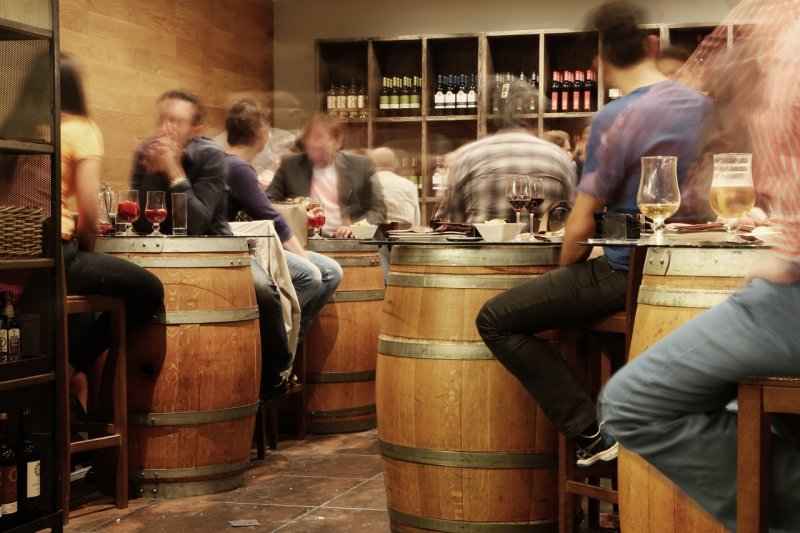Contrary to popular belief, it doesn't matter if you drink wine or beer first -- if you drink too much of either or both, you're at higher risk for a hangover. Photo by Life-Of-Pix/Pixabay
In drinking lore, it's said that having beer before wine, instead of the other way around, can help prevent a hangover. Well, it's not true, a new study finds.
You'll suffer the next day if you drink too much, regardless of how you sequence your drinks, according to researchers at Witten/Herdecke University in Germany and the University of Cambridge in the United Kingdom.
"Using white wine and lager beer, we didn't find any truth in the idea that drinking beer before wine gives you a milder hangover than the other way around," said study first author Joran Kochling, of Witten/Herdecke University.
"The truth is that drinking too much of any alcoholic drink is likely to result in a hangover. The only reliable way of predicting how miserable you'll feel the next day is by how drunk you feel and whether you are sick. We should all pay attention to these red flags when drinking," Kochling said in a Cambridge news release.
For the study, the researchers divided 90 volunteers, aged 19 to 40, into three groups. One group drank about two-and-a-half pints of beer followed by four large glasses of wine. The second group drank the same amounts, but in reverse order. The third ("control") group drank only beer or only wine.
Participants were monitored while drinking. They were also asked to rate their level of drunkenness on a scale of 0 to 10. All remained under medical supervision the night after their drinking sessions.
After interviews the following day, each participant received a hangover score based on factors such as thirst, fatigue, headache, dizziness, nausea, stomach ache, increased heart rate and loss of appetite.
Although women tended to have slightly worse hangovers than men, none of the groups had significantly different hangover scores, the findings showed.
Blood and urine tests, and factors such as age, sex, weight, drinking habits and hangover frequency did not help to predict hangover intensity either. However, vomiting and perceived drunkenness were associated with more severe hangover, the study authors said.
According to study senior author Kai Hensel, a senior clinical fellow at the University of Cambridge, "Unpleasant as hangovers are, we should remember that they do have one important benefit, at least: They are a protective warning sign that will certainly have aided humans over the ages to change their future behavior. In other words, they can help us learn from our mistakes."
The study was published Feb. 7 in the American Journal of Clinical Nutrition.
More information
The U.S. National Library of Medicine has more on hangovers.
Copyright © 2019 HealthDay. All rights reserved.
![]()
















